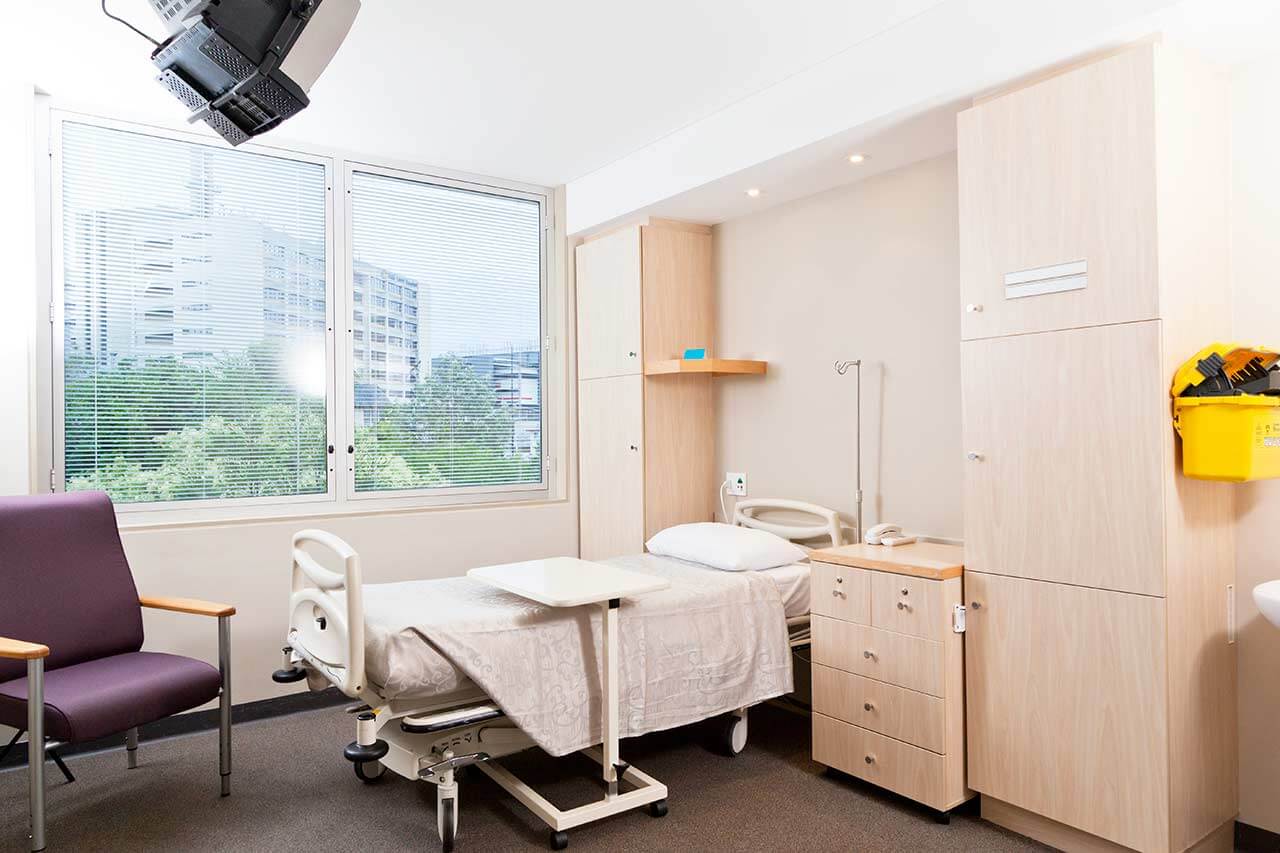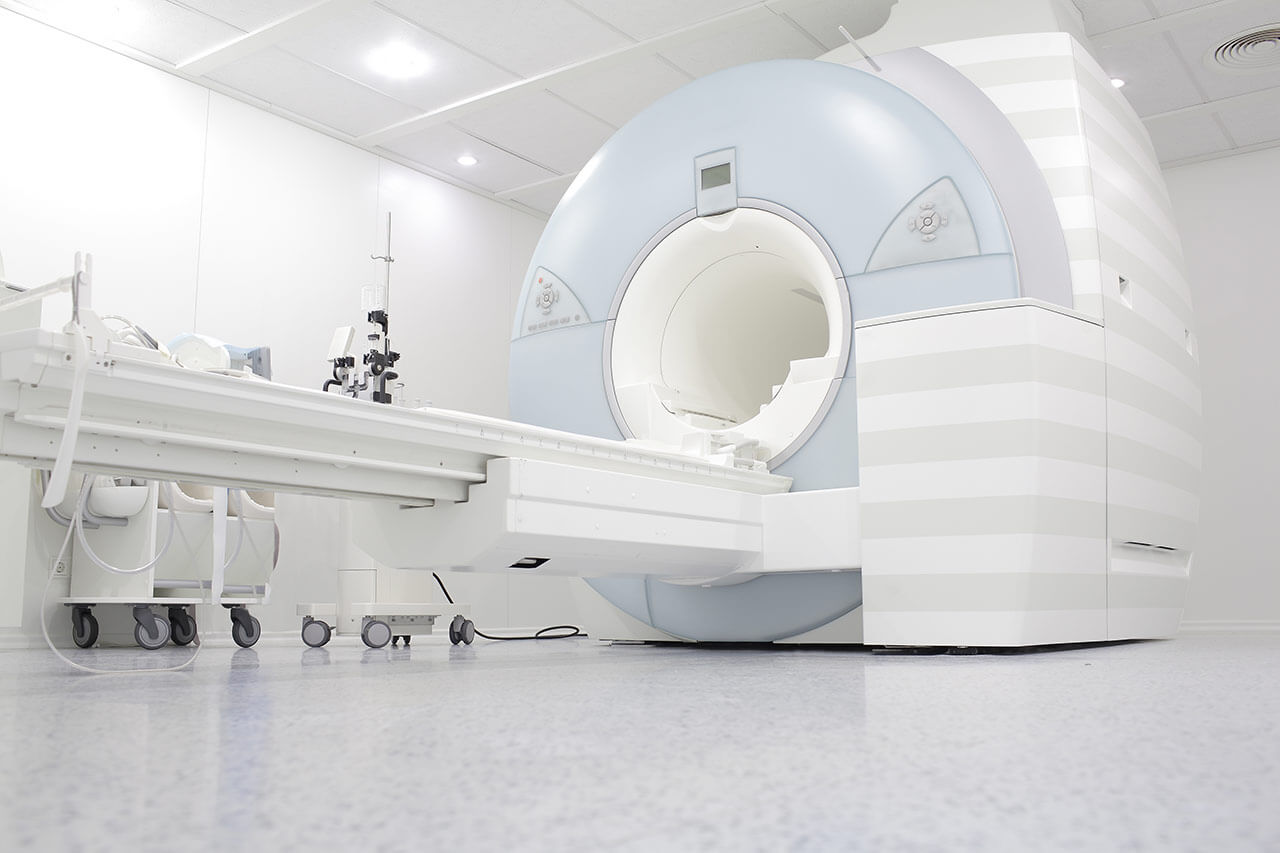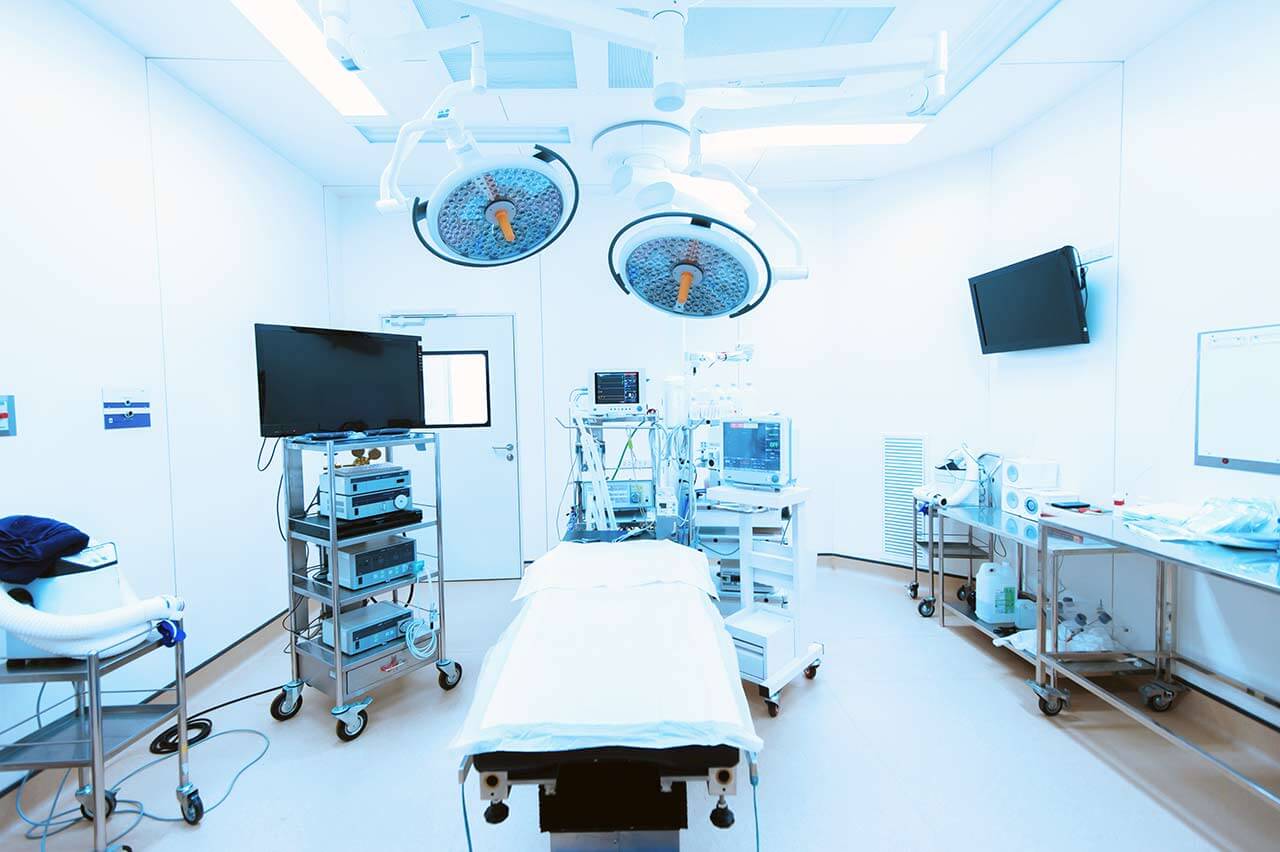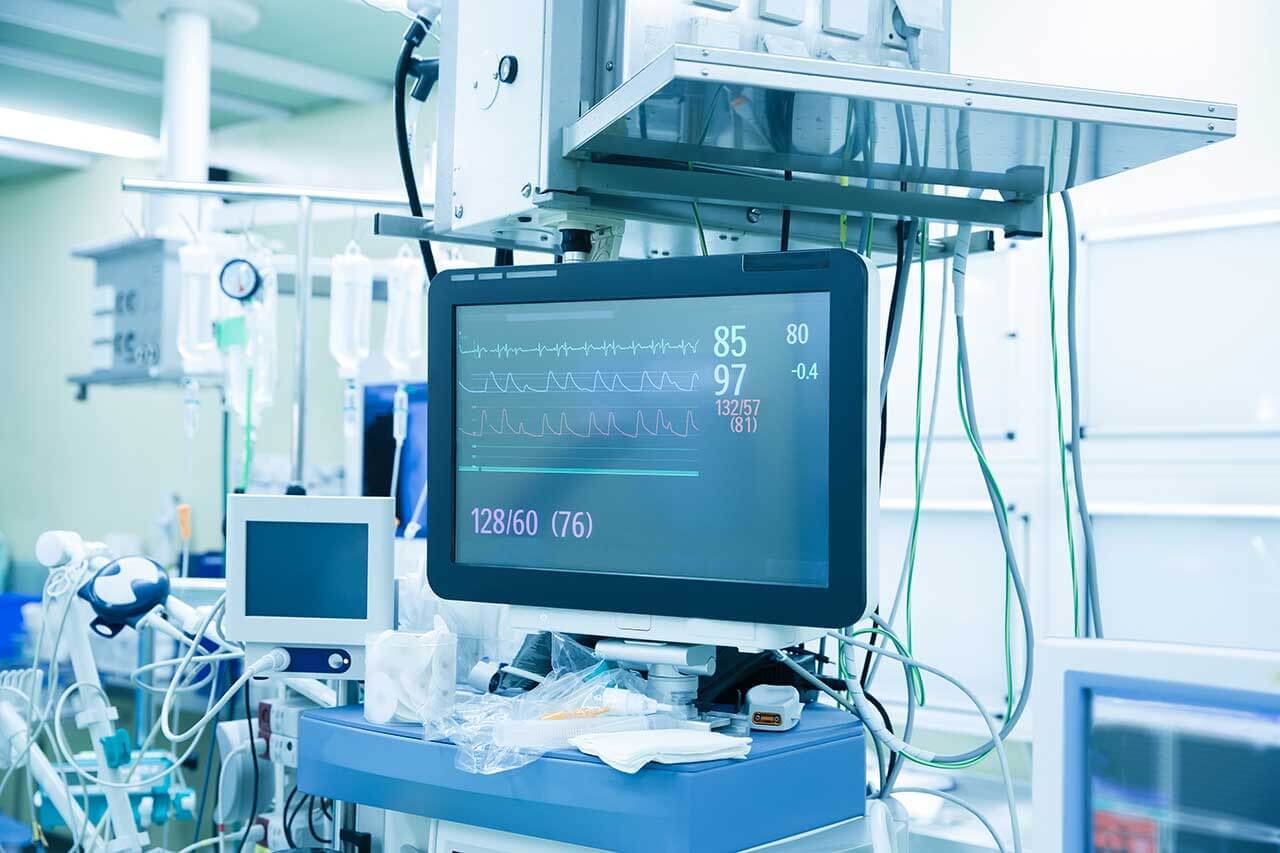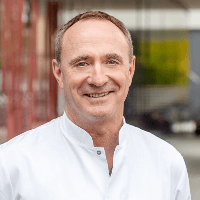
The program includes:
- Initial presentation in the clinic
- clinical history taking
- review of medical records
- physical examination
- neurological examination
- laboratory tests:
- complete blood count
- biochemical analysis of blood
- TSH-basal
- inflammation indicators
- indicators blood coagulation
- ultrasound
- CT/MRI scan of the spine
- preoperative care
- implantation of an epidural catheter
- selective injection of drugs into epidural space
(including the cost of medical pumpe) - stay in intensive care unit for 1 day
- symptomatic treatment
- control examinations
- cost of essential medicines and materials
- nursing services
- full hospital accommodation
- explanation of future recommendations
Required documents
- Medical records
- X-ray examination, MRI/CT scan (if available)
Service
You may also book:
 BookingHealth Price from:
BookingHealth Price from:
About the department
The Department of Adult and Pediatric Neurosurgery, Spinal Surgery at the University Hospital Rechts der Isar Munich offers the full range of services in these fields and specializes in the surgical treatment of diseases of the brain and spinal cord, peripheral nervous system and spine. The important areas of the department's clinical activity also include neuro-oncology, vascular neurosurgery and pediatric neurosurgery. The treatment is provided in four state-of-the-art operating rooms equipped with all the necessary facilities. The department admits about 2,700 inpatients and 4,100 outpatients annually. The team of the department's neurosurgeons is distinguished by high professionalism, and performs many operations using sparing minimally invasive surgical techniques. Navigation systems, intraoperative monitoring devices, 5-ALA fluorescence are successfully used during the surgical treatment. Each operation is carefully planned using advanced navigation devices (under the guidance of CT and MRI scanning). In general, the department's surgeons annually perform more than 4,000 neurosurgical interventions, and therefore they are justifiably proud of their unique clinical experience and treatment results. The department is headed by Prof. Dr. med. Bernhard Meyer.
The patients' health is in the safe hands of a highly qualified medical team consisting of 7 senior physicians, 3 specialized doctors and 17 assistant physicians. All the specialists of the medical facility strive to provide each patient with customized treatment, taking into account his needs and wishes. In addition, neurosurgeons make sure that the patient receives less traumatic, but at the same time, the most effective treatment.
Of particular interest to the department's doctors is neuro-oncology. The department is certified by the German Cancer Society as the Neuro-Oncology Center. The medical facility deals with the treatment of complex brain tumors, such as gliomas, metastatic brain lesions, skull base and pituitary tumors. For this purpose, the department uses the very latest neurosurgical techniques, which were partially developed by the research group of the medical facility. In addition, the methods of computer-assisted surgery are widely used, which allow doctors to accurately detect the location of tumors in the brain and spine, and to remove them as efficiently as possible.
The department's doctors quite often have to deal with the treatment of neurovascular pathologies: aneurysms, arteriovenous malformations, dural arteriovenous fistulas, cavernomas and other pathologies. When performing operations for the above-mentioned diseases, the department's specialists use intraoperative neuromonitoring in order to exclude damage to vital anatomical structures. In most cases, endovascular surgical techniques are used during surgical interventions, but in especially complex clinical cases, hybrid interventions that combine classical open and endovascular surgery are performed.
In the field of spinal surgery, the department's services range from sparing minimally invasive interventions to operations for the preservation of spinal mobility, reconstructive interventions using the most modern technologies and implants. It is worth noting that the Department of Neurosurgery in cooperation with the Department of Traumatology and Orthopedics was certified by the German Society for Spine Surgery in 2016 as the Level I Spine Surgery Center.
The department also admits children and adolescents with pathologies of the central and peripheral nervous system: tumors of the brain and spinal cord, nervous system malformations, traumatic injuries of the brain and spine, hydrocephalus and seizures.
The main department's clinical focuses include the following options:
- Surgical treatment of benign and malignant tumors of the nervous system
- Removal of such brain tumors as glioma, meningioma, and brain metastases
- Functionally guided microsurgery using intraoperative SEP/MEP monitoring
- Preoperative mapping using navigated transcranial magnetic stimulation
- Awake surgery
- Neuronavigation with nerve fiber imaging in combination with PET with labeled amino acids
- ALK-induced fluorescence-guided glioma removal (Gliolan®)
- Skull base surgery
- Removal of meningiomas
- Removal of clival chordomas
- Removal of acoustic neuromas
- Removal of pituitary tumors (pituitary adenomas, including those leading to the development of acromegaly and Cushing's disease, craniopharyngiomas, parasellar meningiomas)
- Spinal surgery
- Dynamic lumbar spine stabilization
- Minimally invasive implantation of dorsal ("posterior") stabilization systems
- Fusion (360 degrees) for degenerative, traumatic, infectious and oncological diseases
- Stabilizing interventions in the area between the skull and the cervical spine
- Microsurgical removal of intraspinal tumors using functional monitoring
- Minimally invasive, reconstructive surgery on the thoracic spine (thoracoscopy)
- Minimally invasive surgery for the treatment of spinal disc herniation and stenosis of the cervical, thoracic and lumbar spine
- Prosthetics of the intervertebral discs of the cervical spine
- Kyphoplasty and vertebroplasty (minimally invasive treatment methods for vertebral fractures), for example, for osteoporosis or neoplastic lesions
- Surgical treatment of neurovascular diseases (for example, aneurysms, vascular malformations)
- Combined endovascular and surgical interventions for complex malformations
- Surgical treatment of pathologies of the central and peripheral nervous system in children
- Removal of brain and spinal cord tumors
- Correction of developmental defects
- Trauma surgery
- Hydrocephalus surgery
- Surgery for convulsive syndrome
- Surgical treatment of severe pain syndromes
- Ablative techniques
- Neuromodulation (altering or suppressing pain pathways in the brain or spinal cord)
- Intrathecal injection of drugs (into the cerebrospinal fluid)
- Functional neurosurgery
- Deep brain stimulation
- Other surgical options
Curriculum vitae
Prof. Meyer studied medicine at the University of Padua (Italy), the University of Erlangen-Nuremberg, and trained abroad at Northwestern University, Chicago, and State University of New York, Brooklyn. In 1989, the professor passed the state examination and received his doctoral degree at the Institute of Human Genetics at the University of Erlangen-Nuremberg. He then completed his training in Neurosurgery in Tuebingen, Duisburg, Bonn, Zurich and the USA. In 1995, Prof. Meyer had his board certification in Neurosurgery and was appointed as Senior Physician in the Department of Neurosurgery at the University Hospital Bonn, where he had his habilitation in 1999 and became Professor for Neurosurgery in 2001. Since 2006, Prof. Meyer has headed the Department of Adult and Pediatric Neurosurgery, Spinal Surgery at the University Hospital Rechts der Isar Munich.
Clinical Interests
- Surgical interventions on the vessels of the brain and spinal cord.
- Surgical interventions for malignant tumors of the brain and spinal cord.
- Surgical interventions on the spine and spinal cord.
Memberships in Professional Societies
- 2019 President of the German Society for Spine Surgery.
- 2010 President of the Section for Spinal Diseases of the European Association of Neurosurgical Societies.
- 2009 Board Member of the German Academy of Neurosurgery.
Photo of the doctor: (c) Klinikum rechts der Isar der Technischen Universität München
About hospital
The University Hospital Rechts der Isar Munich was founded in 1834. It combines long traditions with the very latest advances in modern medicine. The medical facility includes 33 specialized departments and 20 interdisciplinary centers, where patients can receive top-class medical care in all medical fields.
The hospital annually admits more than 65,000 inpatients for diagnostics and treatment, and about 250,000 outpatients receive effective medical care. The hospital also performs more than 40,000 surgical procedures every year, and about 2,100 babies are born here annually. One of the most significant achievements of the medical facility can be called the first transplantation of both arms above the elbow performed in 2008. The surgery that lasted 15 hours, and in which 40 doctors of various medical specialties took part, became a real sensation in the scientific world. Thanks to a unique surgical procedure, the doctors managed to give the patient new hands.
In addition, the employees of the hospital are actively involved in research activities, in which they study various diseases, as well as develop new therapeutic options for their treatment. It should be noted that the research institutes of the hospital are among the most reputable research organizations in the world. A striking example can be considered the Roman Herzog Comprehensive Cancer Center, whose specialists cooperate closely with the Comprehensive Cancer Center Munich in order to find new treatment methods for cancers.
The university hospital has a strict quality management system to maintain a high level of patient care. Since 2011, the hospital has been certified in accordance with DIN EN ISO 9001:2015 at the national and international level. The medical facility was also recertified by TÜV Rheinland in 2020.
The hospital annually provides medical services not only to German citizens, but also to thousands of patients from different countries of the world. This indicates that the hospital has an excellent reputation in the international medical arena and takes on the most complex clinical cases where other medical centers are unable to help the patient.
Photo: (с) depositphotos
Accommodation in hospital
Patients rooms
The patients of the University Hospital Rechts der Isar Munich live in comfortable single and double rooms with modern design. An accompanying person may stay with the patient in the single room. All patient rooms have an ensuite bathroom with shower and toilet. The furnishings of a standard patient room include an automatically adjustable bed, a bedside table for personal belongings, a table and chairs for receiving visitors, a wardrobe, a telephone and a TV. The patient rooms also have Wi-Fi.
The hospital also has enhanced-comfort rooms, corresponding to the level of a high-end hotel. Such patient rooms have additional amenities: a safe, a mini fridge and upholstered furniture.
Meals and Menus
The patients of the hospital are offered a balanced and healthy three meals a day: breakfast, lunch and dinner. The patients have a choice of three different menus for lunch – a classic full menu, as well as a dietary and vegetarian one. When cooking meals, the chefs comply with the current recommendations of the German Society for Nutritional Medicine (DGEM) and the German Nutrition Society (DGE).
If for some reason you do not eat all the foods, you will be offered an individual menu. The hospital also houses a cafeteria with a large assortment of hot and cold drinks, snacks and desserts.
Further details
Standard rooms include:
Religion
Religious services are available upon request.
Accompanying person
Your accompanying person may stay with you in your patient room or at the hotel of your choice during the inpatient program.
Hotel
You may stay at the hotel of your choice during the outpatient program. Our managers will support you for selecting the best option.
The hospital offers a full range of laboratory tests (general, hormonal, tests for infections, antibodies, tumor markers, etc.), genetic tests, various modifications of ultrasound scans, CT scans, MRI and PET / CT, angiography, myelography, biopsy and other examinations. Treatment with medications, endoscopic and robotic operations, stereotaxic interventions is carried out here, modern types of radiation therapy are also used. The hospital offers patients all the necessary therapeutic techniques.
- CAR T-cell therapy
- Autologous and allogeneic bone marrow transplantation
- Transcatheter aortic valve implantation (TAVI)
- Radical and organ-preserving interventions for kidney cancer
- Iridoplasty and iridotomy with Nd-YAG laser
These are acute and chronic leukemias, solid malignant tumors, heart failure, cardiac arrhythmias, heart valves stenosis and insufficiency, vasculitis, benign prostatic hyperplasia, pathologies of retina and vitreous body, Guillain-Barré syndrome, myasthenia gravis and other pathologies.
- Hematology and oncology
- Cardiology
- Nephrology
- Urology
- Ophthalmology
Over 877 highly qualified physicians work at the hospital.
